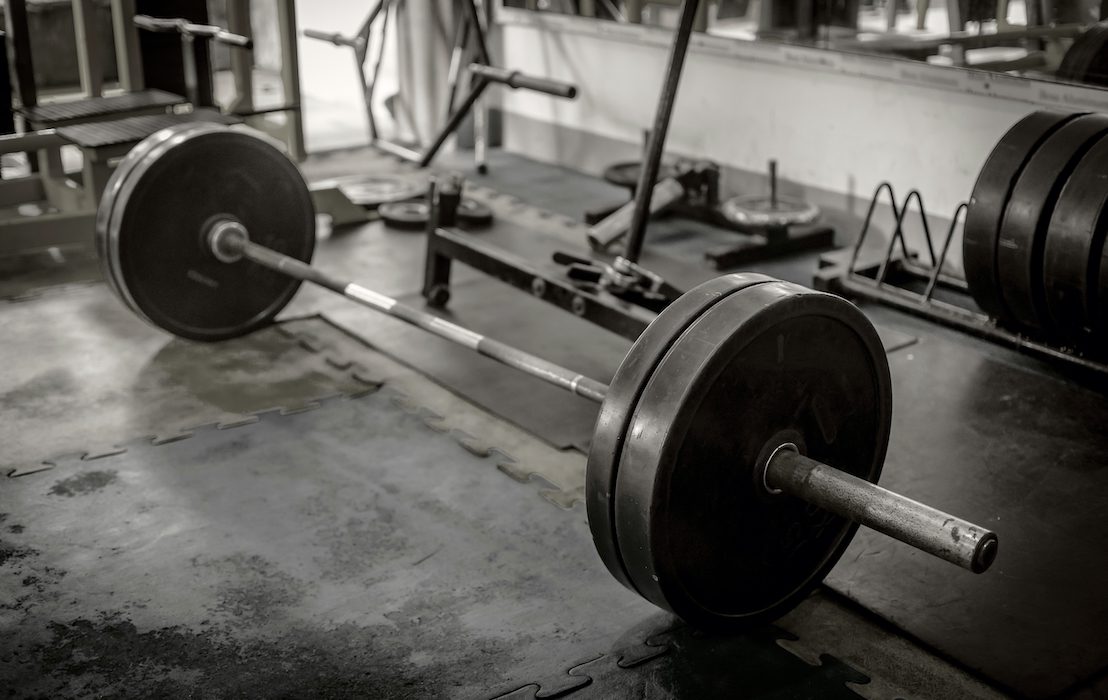A Weighty Education

In The Abolition of Man, C.S. Lewis assails the “men without chests” who characterize modernity: men who are cerebral rather than visceral and treat all moral judgment as mere statements of opinion. These men lack thumos, the spiritedness that leads to courage of conviction in matters of ethical obligation. As Lewis writes, the problem of our time isn’t that we have no moral sensibility, but that we haven’t the courage to substantiate our morals. But what if there’s a way to recover the virtue of thumos?
As The American Conservative’s Micah Meadowcroft has written, lifting weights is one way to build thumos by confronting a challenge that’s not only physical, but spiritual. While mythological heroes can be born with innate virtues like courage, normal human beings must be purposefully shaped to embody traits worthy of admiration. But moral formation means more than learning to differentiate right from wrong; it is also acquiring the deep-seated moral sentiments that compel us to act upon our moral compasses, especially when it’s not easy.
Beyond courage, the other cardinal virtues are prudence, justice, and temperance. Yet courage plays a very different role than the other three. While one who is prudent, just, and temperate may rationally determine the correct response to a situation, his virtues amount to nothing without the courage to act. Regardless of one’s moral axioms, whether Aristotelian, Marxist, or deontological, without thumos it is impossible to be a fully formed person.
How to take moral formation from theoretical ponderings to the real world is perhaps the central question for philosophers of education. It is no accident that so much of Plato’s Republic is occupied with determining how to properly form children into adults. To ensure their inculcation in virtue, Socrates concludes the young may not be exposed to any tales, true or not, promoting immorality, lest their education be compromised. In addition to being shielded from immoral stories, future leaders must also be educated with a moral story, a myth about precious metals in the soul.
Whether we examine the Greeks, Romans, or medievals, it is apparent that, with the apparent exception of the present, education has never been purely about conveying information and measuring technical competencies. A good education includes a kind of knowledge beyond the cognitive, something a textbook can’t capture.
But how is this kind of learning achieved? If contemporary education doesn’t even purport to account for this essential form of knowledge, why are certificates from academic institutions afforded such prestige? In this sense, we no longer expect that scholastic institutions will impart comprehensive education, which has all but disappeared from the Western consciousness.
This is expressed by Dostoyevsky in Crime and Punishment, where his protagonist, Raskolnikov, learns from a “man who keeps up with modern ideas… that compassion is forbidden nowadays by science itself, and that’s what is done now in England, where there is political economy.” One could replace “compassion” (the theological virtue of “charity”) with any of the premodern virtues, and “political economy” with “competence;” we no longer think in terms of good and evil, virtue and vice, but rather competence and incompetence.
What do we do about the failure to provide moral education? It seems simplistic to prescribe athletics as a panacea; after all, we all know of determined athletes with less-than-exemplary character. Yet there is a reason the classical Greeks considered the gymnasium a key part of education for youths. Exercise simpliciter is not necessarily morally formative, but exercise contextualized by analogy between physical and moral struggle can be. This explains many older men and women’s fond recollection of the coach who shaped them to be not just better athletes, but better human beings.
This returns us to the original question: How can thumos and the virtue of courage be inculcated absent exposure to an actual physical or emotional threat? For me, lifting weights provides the opportunity to push myself—not only physically, but mentally. Looking back at most of my life, I’m painfully aware of a lack of thumos. I had opportunities to confront problems in every area of my life, from family to peers to academics, that I missed because I was afraid. I’m not particularly cowardly—rather, we’re all faced with frightening situations we have to deal with.
It’s scary to try something new because you may fail and shatter your self-confidence. But there will always be people in need of confrontation, and a person incapable of throwing himself into a totally foreign challenge will never experience growth. Lifting weights helped me to overcome my lack of courage by presenting me with a physical challenge that mirrored spiritual struggles. Exercise doesn’t have to be spiritualized, but if you can’t handle the deep discomfort of something like weightlifting, you won’t have the strength to do what’s right when real-life comes knocking.
James Diddams is the Politics & Theology Research Associate at The Institute on Religion and Democracy. He graduated cum laude from Wheaton College with majors in philosophy, economics, and art history and minors in math and political science. After Wheaton, he was a fellow with the John Jay Institute.
Comments